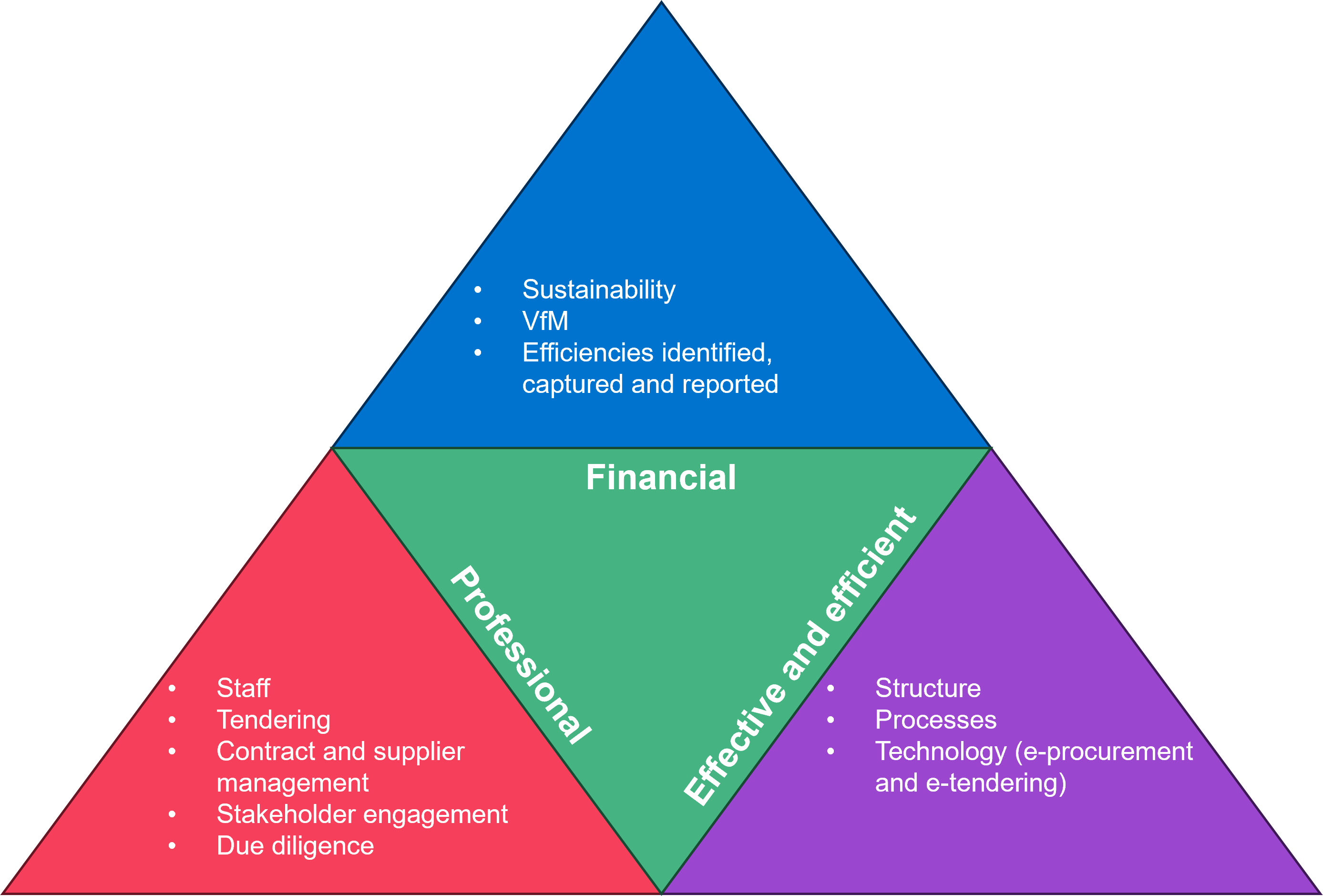Procurement Information
The University of Hertfordshire (“the University”) no longer meets the criteria of a ‘body governed by public law’ or a “public authority” and is therefore not considered a Contracting Authority for the purposes of the Public Procurement Act 2023. As a result, the University will no longer be subject to the regimes contained in the Public Procurement Act 2023 with effect from the 1 April 2025. However, as an institution founded for the public good, an exempt charity, and an organisation in receipt of public funds, the University has a duty to manage expenditure in an appropriate manner and aims to deliver value for money across its non-pay expenditure by adhering to best procurement practice.
The University reserves the right to voluntarily operate under the Public Procurement Act 2023 on a case-by-case basis despite being under no legal obligation to adhere to the legislation.
University procurement follows one of two pathways: (1) collaborative procurement (through regional HE purchasing consortia); or (2) in-house tendering and contracting.
- The University is a member of the Southern Universities Purchasing Consortium (SUPC). Further details on this consortium available
- University contract and tender information is available at our University of Hertfordshire Electronic Tendering Site.
Responsible Procurement
Due diligence is undertaken during procurement processes to ensure economic, environmental and social matters are considered in addition to regulatory compliance.
Further information can be found about:
If wishing to contact procurement to bring to our attention any matter which may not be in line with our values please email categorymanagers@herts.ac.uk.
Procurement Strategy 2025-2030
Purpose
This page sets out the procurement strategy following consideration of all the options, and their relative benefits and risks. The strategy is based on implementing the University Sustainable Purchasing Policy and achieving best practice procurement values with synergy to the University vision of ‘powering our staff, students, and society – to make an impact’ through the three transformational initiatives of digital transformation, estates and sustainability, and people and culture, to achieve strategic objectives within the strategic plan 2025-2030.
Vision
To demonstrate continuous improvement and the achievement of Value for Money through the effective procurement of goods, services, and works to ensure that the institutions needs are met with alignment to University policies and strategies.
To add value to tenders, contracts, and purchases to ensure maximum outputs and ‘best in breed’ solutions achieved.
To have a clear framework of accountability and responsibility that adopts legally compliant, best practice procurement procedures and techniques.
To encourage communication and interaction with markets, contractors, and stakeholders.
To achieve the best permissible position in the Procurement Maturity Assessment (PMA+) and embed Responsible Procurement encompassing Economic, Environmental, and Social considerations into procurement processes.
To work towards embedding the Sustainable Development Goals 8, 9, 12, and 13, in our approach to Responsible Procurement and supply chain sustainability, making global goals local business through the extension of the University’s operations, products, and services, to better serve our needs both today and in the future.
SDG 8: Decent Work and Economic Growth
SDG 9: Industry Innovation and Infrastructure
SDG 12: Responsible Consumption and Production
SDG 13: Climate Action
Effective procurement triangle

Approach
The areas where procurement shall assist the University key strategic objectives are: